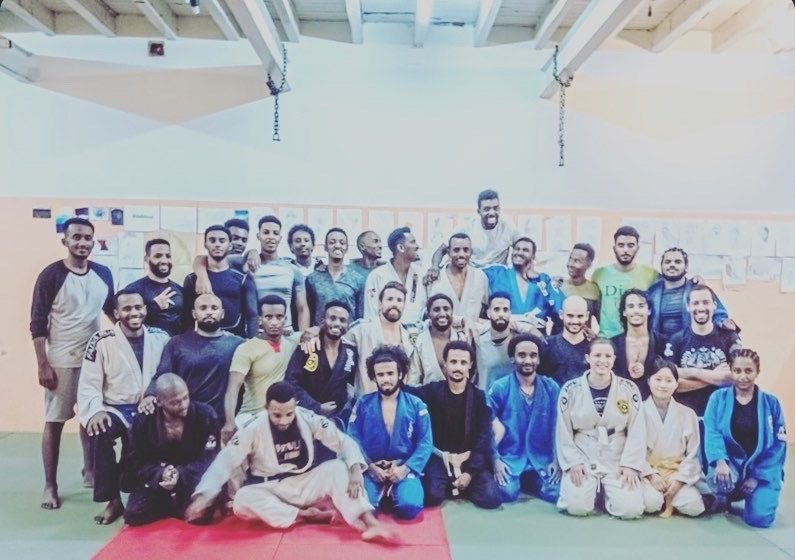Featured traveller: Volkert Doop – BJJ Globetrotters
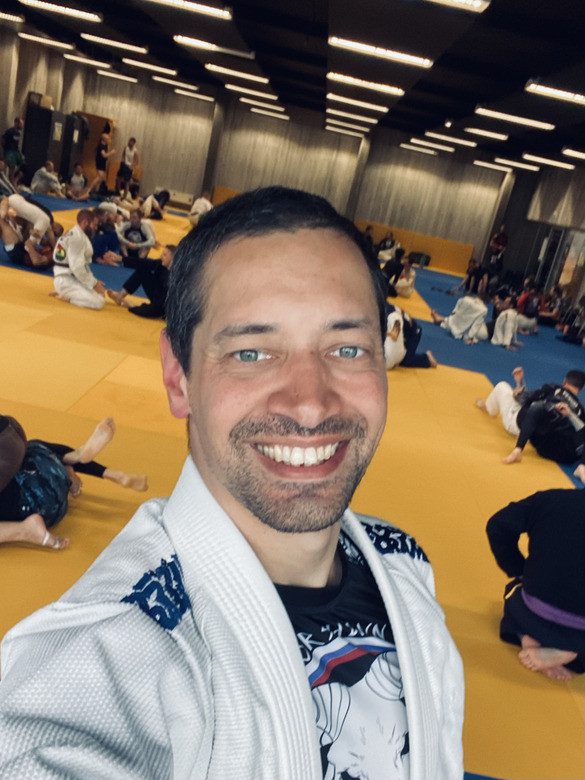
Volkert Doop – BJJ Globetrotters Camp in Faroe Islands
Age: 39
Belt: White
Profession: Project Manager
How many years in BJJ: Almost three years
Other martial arts: Four classes of Myanmar Lethwei boxing back in 2017
Where do you live: The Hague, Netherlands
Where are you from: The Hague, Netherlands
Other fun or curious information you would like to share: This year I fought my first two competitions.
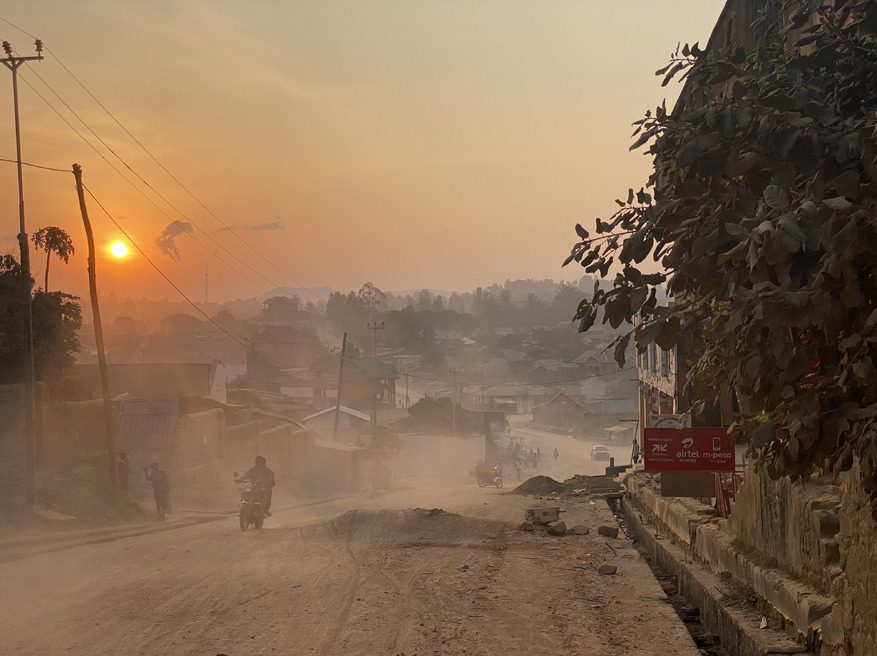
Tell us what inspired you to travel and train?
After starting to train BJJ in January 2020, I immediately found BJJ Globetrotters online, and I felt that this could be my thing. Travelling and learning how to shoulder roll and perhaps even some arm bars while traveling to locations I’d never been to, sounded way too exciting. That month I immediately booked the Arizona camp for March 2020 and the following Zen camp.
As we all know, 2020 was a tough time for travel-hungry pajama-fighters and the Arizona camp was off. I had a tough time getting through those first few lockdowns. I had no idea about basic techniques, and suddenly I wondered if this was the right thing to have invested my money in and committed my time to. Though during the following Zen camp I realized how I was going to try and progress through Jiu Jitsu: slowly and steadily, while enjoying the scenery.
Tell us about your most recent travel and your upcoming travel – where have you been and where are you going?
This year my calendar bulged with travel. I had my third (Iceland), fourth (Faroe Islands), and soon my fifth camp (Zen). I travelled a couple of weekends to Rome, Berlin (shout out to Jack!), Switzerland, and the UK. And work travel to Burundi, Rwanda, DRC and Ethiopia.
In November I plan on travelling to Goma, DRC. There is no BJJ there, but the local boxing champ invited me into his gym. Apparently also some Congolese judo guys have volunteered to teach me some takedowns.
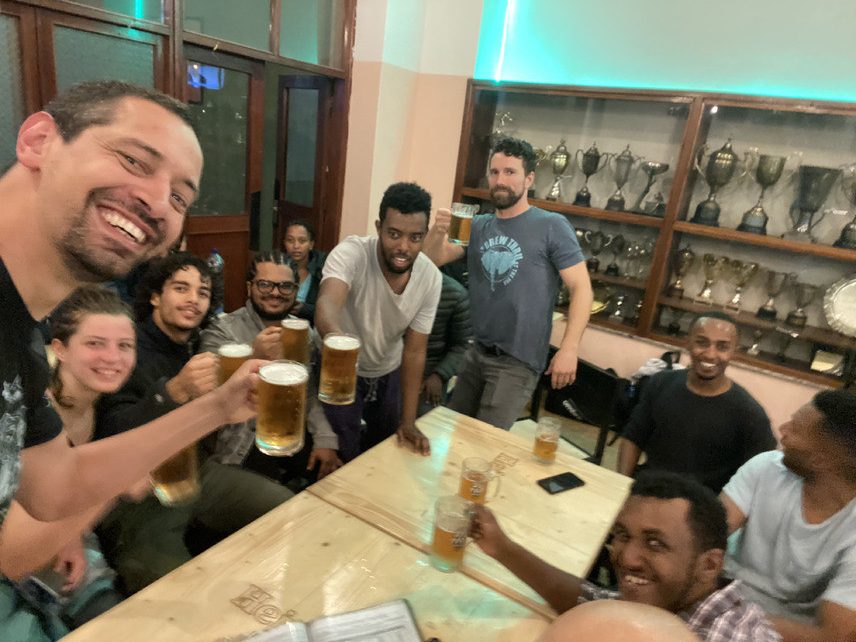
Volkert Doop – BJJ Globetrotters
What are the things you enjoy about travelling?
Ever since I was a teenager I’ve been fascinated about languages, cultures, and travelling. Now I’ve visited more than 60 countries and have lived in more than half a dozen. Many of the places I visited and lived in were touched by violent conflict or raw dictatorships. I managed to visit Syria just before the war started there in 2011, and I lived in Sudan, Central African Republic and Congo, and visited places like South Sudan and Myanmar. Every place I visit provokes these questions about where I come from and how the world is organized. Wherever I travel, I try to experience a part of daily normal life, because even though the political situation can be chaotic, there is always some normality to be found which helps to bridge the gap between me as a visitor and me as a part of society.
Although I had never trained any martial arts, in many places I’ve experienced it as part of the local culture. Just like the Netherlands is known for its kickboxing, in Sudan there is a lively Nuba wrestling culture and there I attended some matches. In Kinshasa, I saw teenagers training boxing in the early morning on the streets. So when I visited Myanmar, this led me to also take up some classes of Lethwei boxing. Without being able to understand a single spoken word, I trained along and I got a sense of the kind of discipline it would take to become any good at that sport.
Can you give us some examples of experiences you had that makes it worth traveling and training?
Whenever I now travel, I try to find a local gym. Since I travel to rather far-flung places, this isn’t always easy. Though this July when I was in Addis Ababa, Ethiopia, I found KAO BJJ, the only place to train Jiu Jitsu in Ethiopia. Being able to just join in and feeling the same excitement as in other classes at home or at the camps is so rewarding. The familiarity of Jiu Jitsu, while being far away from home, is perhaps for me one of the great things about travelling and Jiu Jitsu. And afterwards we could just sit down, break down sparring sessions, talk upcoming matches and just general weird Jiu Jitsu stuff over Ethiopian beer and Italian pizza.
Also having been part of the first Faroe Islands camp was a great experience. Not only were we, as humble visitors, excited, but the genuine excitement of the local BJJ community was palpable. I guess there is something about the traveling Jiu Jitsu community which doesn’t only make traveling exciting for the visitor, but also for the host.
Exchanging techniques from home and blending in those from abroad… for me it connects me both to my roots, where I come from, as well as to the town, the country, and the people that I’m visiting.
What has so far been the most surprising experience for you when traveling?
Last month, when visiting a friend in Woking, UK, I walked into the local gym. To my surprise, fellow Globetrotter Seb opened the door! Is it that the world has gotten very small, or is it that BJJ Globetrotters has gotten very big?!
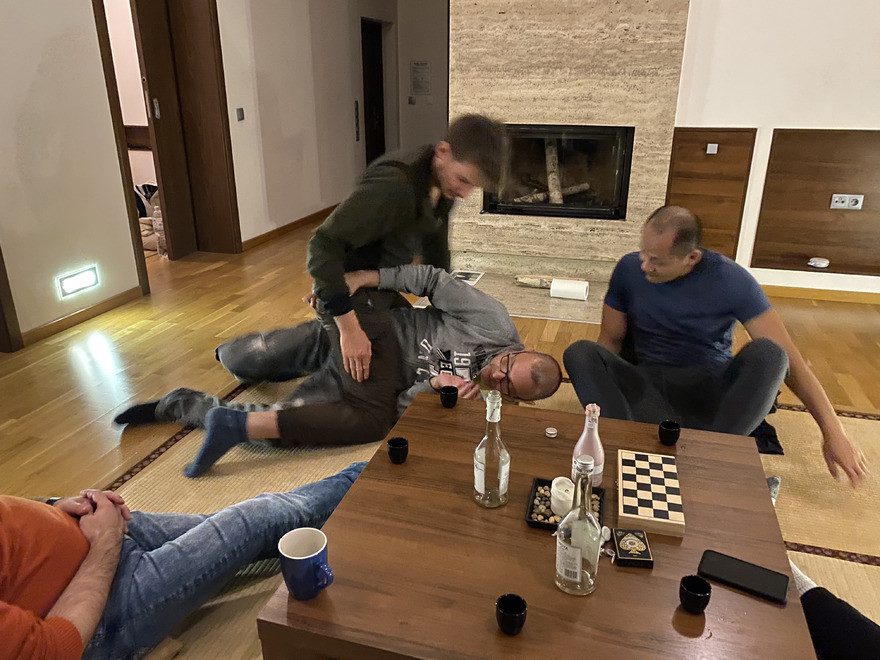
Volkert Doop – BJJ Globetrotters
Are you a budget traveller – and if so how do you plan for a cheap trip?
My best advice is to make a lot of friends. Both at the camps, but also wherever else you can. It has allowed me to visit so many places I otherwise would have never been able to visit. And of course, I try to pay it forward. So please come and visit me in The Hague!
If you were to pass on travel advice to your fellow Globetrotters, what would it be?
Follow your curiosity and don’t hesitate to reach out to any local gyms. So far I’ve only had good experiences.
And if you happen to visit gyms which have difficult access to BJJ materials, bring them with you! In Ethiopia for the new students, they really had a tough time getting enough training materials: gis, white belts (the pieces of fabric), and higher belts (the persons).
